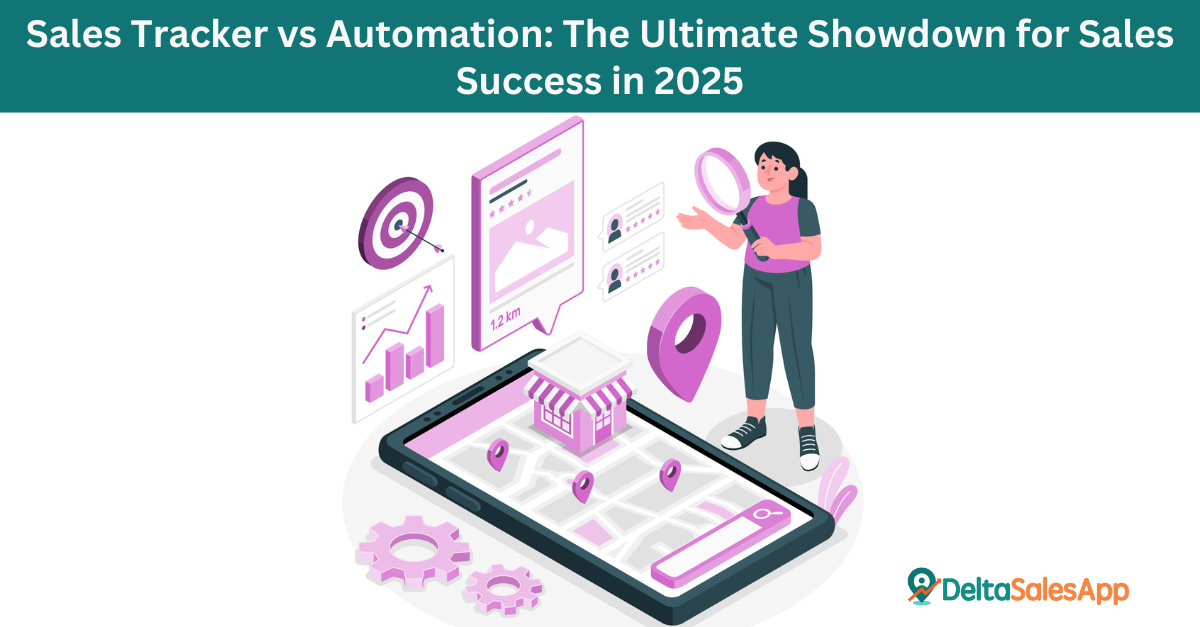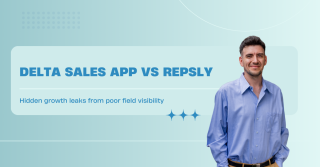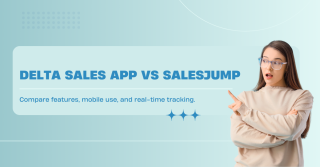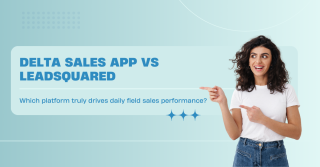Sales Tracker vs Automation: The Ultimate Showdown for Sales Success in 2024

Sales Force Automation in the Digital Era
With the rapid evolution of the digital economy, the importance of an efficient sales tracker has surged dramatically. At trade fairs, networking events, and industry conferences, one of the most frequently asked questions remains:
“How can we monitor our sales teams in the field without making them feel micromanaged?”
Our response: “You are tracking activities, not people.”
For small FMCG businesses and growing CPG brands, tracking field sales activities is no longer optional—it’s a necessity. In the past, sales representatives could record retailer orders in notebooks without much concern about competition. However, in 2024, with the rise of direct-to-consumer brands and heightened retail competition, companies need real-time data to make informed decisions. Simply relying on manual data entry in registers or spreadsheets results in inefficiencies, delays, and human errors.
For founders and sales leaders of SMB consumer goods companies, using a sales tracker offers visibility into field activities and enables rapid data centralization. But is a basic tracker enough? Wouldn’t it be more beneficial to have a sales enabler—a tool that not only tracks sales but also provides actionable insights, optimizes field performance, and allows brands to react swiftly to market shifts?
Think of a sales enabler as a GPS for sales operations. Just as GPS technology helps you navigate from one destination to another, a sales enabler—also known as sales force automation—guides businesses on where they have been, where they need to go, and the best path forward.
Sales Tracker vs. Sales Enabler: What’s the Difference?
A sales tracker is a software tool that helps FMCG and CPG brands digitize, monitor, and control sales activities in the field. While these trackers collect real-time data, they offer minimal insights, leaving sales teams to analyze the data manually.
A sales enabler, on the other hand, automates the sales process and leverages AI-powered analytics to generate actionable insights. It provides information on:
- Sales volume
- Number of outlets visited
- Active sales representatives in the field
- Categories of products sold
- Number of productive outlets
- Average ticket size
- Market trends and performance flags
Advanced solutions like Delta Sales App go a step further by incorporating historical data patterns to suggest optimized sales routes, improved product assortment strategies, and real-time competitive intelligence.
Why SMEs Need a Sales Enabler in 2024?
Many small and medium-sized FMCG businesses still rely on spreadsheets for sales tracking. While this might work in the initial stages, it becomes unmanageable as the company scales. India alone has over 12 million retail outlets, and more than 30,000 small and medium FMCG brands cater to a vast population. Relying on outdated technology can severely limit a company’s ability to compete. A sales enabler creates a data-driven decision-making culture by offering:
Key Features of a Sales Enabler
Validation of Outlet Visits
Most modern sales tracking software includes geo-fencing, which validates each outlet visit. Businesses can live-track sales representatives to measure:
- Number of outlets visited per day
- Average time spent at each outlet
- Attendance and work discipline
Smart Order Booking
For an SMB FMCG brand, understanding which retailers purchase which products is crucial. While a sales tracker allows order punching, a sales enabler takes it a step further:
- Suggests complementary products based on historical buying patterns
- Recommends optimal order quantities to maximize revenue
- Facilitates remote order booking through telephonic order modules
- Shares live inventory data with distributors to prevent stockouts
Automated Attendance Management
Sales teams often face challenges in maintaining attendance records. A KRA-based attendance policy eliminates confusion and ensures compliance. Businesses can define specific workflow policies, such as minimum outlet visits per day and timely first visits, ensuring productivity remains high.
Route Optimization
The Delta Sales App enables AI-powered route planning to help brands expand efficiently. Sales representatives can:
- Cover more retailers in less time
- Prioritize high-value clients
- Optimize travel routes to reduce costs
Real-time Promotions & Discounts
Sales teams can activate and modify discounts, schemes, and promotional offers directly from their mobile apps, ensuring better retailer engagement and loyalty.
Primary Order Module
Traditional sales trackers do not offer visibility into primary orders (orders placed with distributors). However, a sales enabler allows direct primary order placement from the field, offering real-time inventory insights.
Benefits of Using a Sales Enablement Solution for SMBs
Higher Compliance & Productivity
A sales enabler ensures transparency in daily sales operations. Sales leaders can monitor:
- Beat adherence (whether sales reps visit all assigned outlets)
- Selling across multiple product categories
- Time spent at each retailer
Enhanced Market Penetration Insights
Unlike basic sales trackers, a sales enabler helps businesses assess market penetration by offering insights on:
- Active retail outlets (outlets that placed at least one order in the last 3 months)
- Regional sales performance across Tier-1 and Tier-2 cities
- Category-wise sales trends
Improved Sales Performance
With historical data analysis, sales leaders can identify:
- Trends in consumer buying behavior
- Seasonal demand fluctuations
- Retailers that need more engagement
Competitive Analysis
Sales enablement platforms allow businesses to benchmark their performance against competitors, helping them identify opportunities for growth and differentiation.
AI-Powered Forecasting
Advanced sales enablers like the Delta Sales App provide detailed year-on-year, month-on-month, and last-quarter comparisons. This allows companies to:
- Plan inventory more effectively
- Optimize their go-to-market strategy
- Refine marketing and promotional efforts
Final Thoughts: Should You Choose a Sales Tracker or a Sales Enabler?
If your goal is merely to digitize your sales process, a basic sales tracker may suffice. However, in today’s fast-paced market, sales enablement solutions offer the intelligence and automation necessary to scale, optimize, and outmaneuver the competition.
For small and emerging FMCG brands, investing in a full-suite sales force automation solution like the Delta Sales App can be a game-changer, enabling greater transparency, efficiency, and strategic growth.
Are you ready to take your sales operations to the next level?
Book a demo with Delta Sales App today and experience the power of intelligent sales automation.









